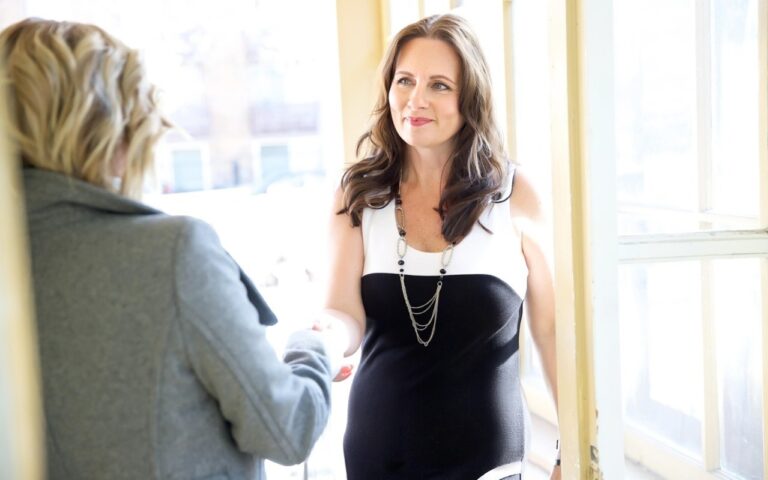Today, I would like to talk about a topic close to my heart: asking for help. I see many people struggling with it, and it’s an opportunity for us to do better as a society. Asking for help is tough for many, but it can be even harder for people from different cultures due to stigma and beliefs.
Cultural factors and education can play a large role in influencing whether people feel comfortable asking, receiving, and offering help. Some of those includes: expectations to be independent, fear of burdening other people with their own problems, personal pride, reputation, avoiding embarrassment, community expectations around gender roles, historical context, or fear of approaching people higher up in the social hierarchy. Communication style plays a huge role, and in multicultural Canada, we all do it differently. As you read this message, I encourage you to stay open and free of judgment. Only when you are free of judgement, you truly learn.
A little about my own story:
As a woman born and raised in Romania, asking for help was very difficult. My mom always told me to rely on myself first. This made me uncomfortable asking for help and made it hard for me to delegate tasks early in my career. As a result, I ended up with a lot of work, and overtime. My mom also advised me to be careful with whom I discuss personal matters. It took me a while to understand why she said that, but as I got older, I understood better. She was trying to protect me from unnecessary discussions, that we can create when we share too much, too early, and with the wrong people. Now, I share my perspectives to open conversations, and spread awareness. Be there for people without expectations, and life will reward you in ways you don’t expect.
Despite spending countless hours at work, earlier in my career, people knew very little about my personal life. The focus was always on business, and I kept personal matters private. However, I always enjoyed discussing common interests with just a few people in my team, and a few of my peers. It helped me stay focused on the business goals. Looking back, I realize there is great value in getting curious about someone’s background to understand them better, build strong connections, and manage perceptions. However, not all work environments encourage it.
During COVID, and with so many travel restrictions, I felt a stronger need for connection and engaged in many online activities, meeting great individuals, and sharing our common interests and work experiences. I realized many people I spoke with, crave authentic connections, and many conversations happen behind closed doors. It’s easy to misinterpret someone when you don’t have meaningful conversations and take the time to know them. Listening to those stories made me realize how detrimental this could be to the well-being of individuals, and despite having more material things in North America, people can feel lonelier than ever. Many people don’t share their struggles at work, which can affect their performance and relationships.
Leaders need to get to know their people beyond their work to understand what motivates and inspires them, however not too many company cultures allow time for it. There is a great opportunity for people to be more open, connect, discuss, and share to learn and build connections. Learning always goes both ways.
COVID showed us that deep connection, authenticity, and time are more important than ever. Let’s learn to be human again.
Why is important to ask for help?
Asking for help is a great way to connect with others, listen to different perspectives, and learn. If you don’t ask, you don’t know what’s possible or what resources are available. Often, asking for help feels shameful because it can be perceived as a weakness, but, in reality, asking for help takes courage. Another reason people don’t ask for help is the fear of rejection, which is a strong fear for many. No one likes to be rejected, but rejections can redirect us to better situations, even if we don’t realize it at the time. I believe it’s better to be rejected than not to ask. It’s also a great way to see who is truly there for you in times of need. Those are the people to keep in your life. Besides learning, increased efficiency, and building relationships, asking for help reduces stress, and empowers others to feel valued when providing support. People generally like to help but may not always know how to, so communicating and being specific about the help needed is key.
- In business: Asking for help will move you forward when you are stuck. We all know a business is never done alone, and the more perspectives you have at the table, the more progress you’ll make. Always seek guidance.
- In a job setting: Asking for help can improve your relationships with peers and leaders, help you get feedback, and build deeper connections. Connections and relationships are more important than results, and many people coming from other cultures learn this later in life.
- In a job search: Asking for help is tough, especially if you’ve reached a certain level of professional achievement. Many struggle to put the “Open to Work” banner on LinkedIn due to beliefs, pride, or shame. It is understandable. People can be very judgmental, so many struggle in silence.
- In relationships: Asking for help early on can save friendships and marriages, and improve relationships with parents, spouses, business partners, and more. Never be afraid to talk to someone and ask for an opinion on how to handle certain aspects of a conversation.
- In health: Asking for help allows you to identify why you may be too emotional, too tired, or not feeling well enough to handle certain conversations well. When you are not in the best shape, listening skills can be affected, and self-aware may be limited. As leaders, take a moment and ask ” are you ok? Asking for help from a doctor/naturopath earlier is key in identifying what’s going on and how the lack of nutrition, exercise, and sleep can affect our well-being, thinking, and ultimately behaviors.
Sometimes help is offered to us, but we don’t realize it at the moment and aren’t ready to receive it for various reasons. Sometimes we offer help, and it’s not taken. I’ve learned to offer my help only when asked, but as someone who sees potential in people and businesses, I often fall into the trap of offering unsolicited help, when is not requested. I now learned to ask for permission, before offering anything, but I’d rather offer help, and have it declined than not offer it at all. It is all about choice.
When giving help, please consider:
- Give your time and attention, and have no expectations. In North America, many people expect help to be reciprocated, but we often receive more help from strangers than from people who know us. In the last few years, I’ve heard countless stories from people who felt disappointed by ex-colleagues who didn’t bother to return messages. Don’t be that person.
- Understand the person’s needs and be respectful of the situation. Even if you can’t help someone you can always be there to listen and connect. If you can’t help, offer to make a connection to someone who can, or simply listen.
- Make it easy for the person to approach you. Being open, helps other people be open. Create an environment of trust where people can contact you at any time.
- Be kind, compassionate, and listen. Often people just want to catch up and connect. I love those relationships since there is nothing more annoying than hearing from someone when they only need help. If they want advice give it to them, if not just listen. You may be learning something new from that experience as well.
- Follow up with the person. There’s nothing better than someone checking on you from time to time, especially after helping. If the person paid you for the advice, it is even more important to follow up and check-in, however, many people are still not doing it, even if they got paid.
- Be supportive and encouraging: Life happens, and we don’t always make the best decisions. Admitting that by ourselves is part of learning and growing.
Final thoughts: Life is about giving, receiving, and doing as much good as you can, without expecting anything in return. There are givers and many takers in our society. Be a giver. Take that moment to say ”thank you” to someone who made an impact in your life in a way or in another. Be grateful, and most importantly be there for people when they need you, and life will reward you in ways you don’t expect. If you found this article helpful, let me know.
Leave a comment, a like, or a reshare. You never know who needs to hear this. Most importantly don’t be afraid to ask for help. You will never know who you meet along the way, and when is your turn.





